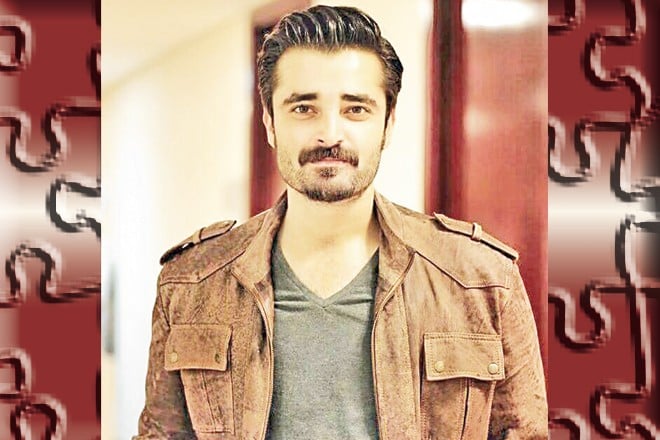

instepopinion
The entertainment industry, made up of film stars, TV and theatre darlings and musical superheroes, is in a conundrum of sorts. Operating in a country like Pakistan with its share of religious zealotry that stems from lack of awareness and knowledge of the religion itself, terrorist attacks, military operations, hysteria-inducing politicians, rampant, unbearable misogyny around every corner as and lack of respect for basic human rights, is hard enough.
In an environment as toxic as this, the performing arts not only creates a sense of hope in a time of utter hopelessness but also provides us with an opportunity to examine or re-examine these very issues that we may well be running from or simply ignoring due to the pace of everyday life.
The thinking artist, no matter what field, uses their work to depict our dichotomy. It can be fairly palpable as has been the case with Shehzad Roy (‘Laga Reh’ and ‘Qismat Apnay Haath Mein’), Ali Azmat (‘Bum Phatta’, ‘Tanha Hai Kyun’, ‘Sawal’), Strings (‘Main Tou Dekhonga’, ‘Beirut’), Ali Zafar (‘Urein Ge, ‘Aag’) and Overload (‘Lahore’, ‘Ankahi’) to name just a few.
Artists from the indie world can be less subtle, more metaphoric but if you listen closely, an awareness of their surroundings is present. Names like Mole, Adil Omar, Talal Qureshi, Ali Gul Pir and Sikandar Ka Mandar spring to mind and there are several others. Acts like Rushk have plenty of songs that will help you make sense of the senselessness. Some artists, such as Slowspin and Nawksh, use their art as a tool of self-expression and during the process provide us with comfort and solace.
Similarly in cinema, films like Moor, Manto, Dukhtar, Lamha, Bol, Khuda Kay Liye, Shah and Zinda Bhaag deal with a range of issues from displacement to loss and longing to religious bigotry and many more themes that mirror issues haunting Pakistan.
Theatre is also engaging the audience by taking on strong issues like addiction and mental health awareness, slowly but surely. In between, the fun, frolic of youth and music can be found in musicals like Grease that will take you away from a perpetual sense of fear and or misery we carry, given the state of affairs. All of these are positive signs and necessary.
The conundrum, however, stems from the fact that a handful of artists, who enjoy enormous popularity in the country, continue to shoot from the hip on every issue, all the while enjoying the perks of stardom. A case in point: Hamza Ali Abbasi. One will not dignify his remarks by repeating them here. Clearly, HAA is easily offended by things that have little to do with him. The problem is not that Hamza has an opinion on every issue. On occasion, he even gets his analysis right. The real issue comes from his approach, the arguments lack nuance and sound reactive instead of rational. The drama is never contained to TV or cinema, he brings it on every time he logs onto Facebook. Sadly, despite his star power and growing popularity, on most days, he comes across as a petulant teenager. Why is this an issue? Well, remember this, in a country as polarized and confused as Pakistan, a simple remark can be parsed, misconstrued into something much more sinister.
The age of social media means artists can connect directly engage their fans. It’s not always a bad thing. Look at Noori, their interactive history and the amount of hope they inspire, in listeners and within the industry. But when you’re constantly barraging the interwebs, employing a sense of restraint and discipline could be the way to go.
Should artists employ political correctness? Absolutely not. They have rights to views even if they are controversial and one doesn’t have to agree with them. But with great power comes great responsibility. While this article is being written, the capital is coming out from under siege, Lahore is weeping and the television channels are obsessing over cricket. Keep in mind that after Pakistan’s abysmal performance in the Twenty20 World Cup, no one is ashamed enough to resign, not the coach, not the captain and not the chairman of the PCB even as they continue to shirk away from taking responsibility. Our priorities seem out of touch. In a hazy world such as this, cultural initiatives provide a sense of positivity, community and helps in reclaiming public spaces as well as changing the narrative. And airing views that simply serve as fuel to fire sounds a bit juvenile and borders on dangerous.
It’s not as if artists are responsible for representing the entire country. That’s a burden no one can carry. But artists should, at minimum, learn to appreciate the art of keeping an open mind. We are still in the midst of finding a cinematic identity after years of floundering aimlessly. With just a handful of movie stars, it’s important to remember how quickly things turn.
The other spectrum of course is that those who do raise their voice in a thoughtful manner are often bypassed or attacked. In a recent interview with Instep, seasoned actor Sania Saeed openly discussed the negative impact regressive roles can have on society. Sharmeen Obaid-Chinoy, two-time Oscar winner, is constantly under fire for making Pakistan look bad even though her work often celebrates the many positives in this country and the films that don’t are made, not with the hope of embarrassing the country abroad, but with the mission that it will shed light on issues that we shove under the rug. In another interview, veteran director Mehreen Jabbar confessed that she doesn’t work with people who disrespect women and actually fires them. These ideals should gain more traction than they usually gain.
In the end, nothing will keep our stars from speaking up and nothing should. But realizing the ground reality is important. Shooting from the hip on social media is not.